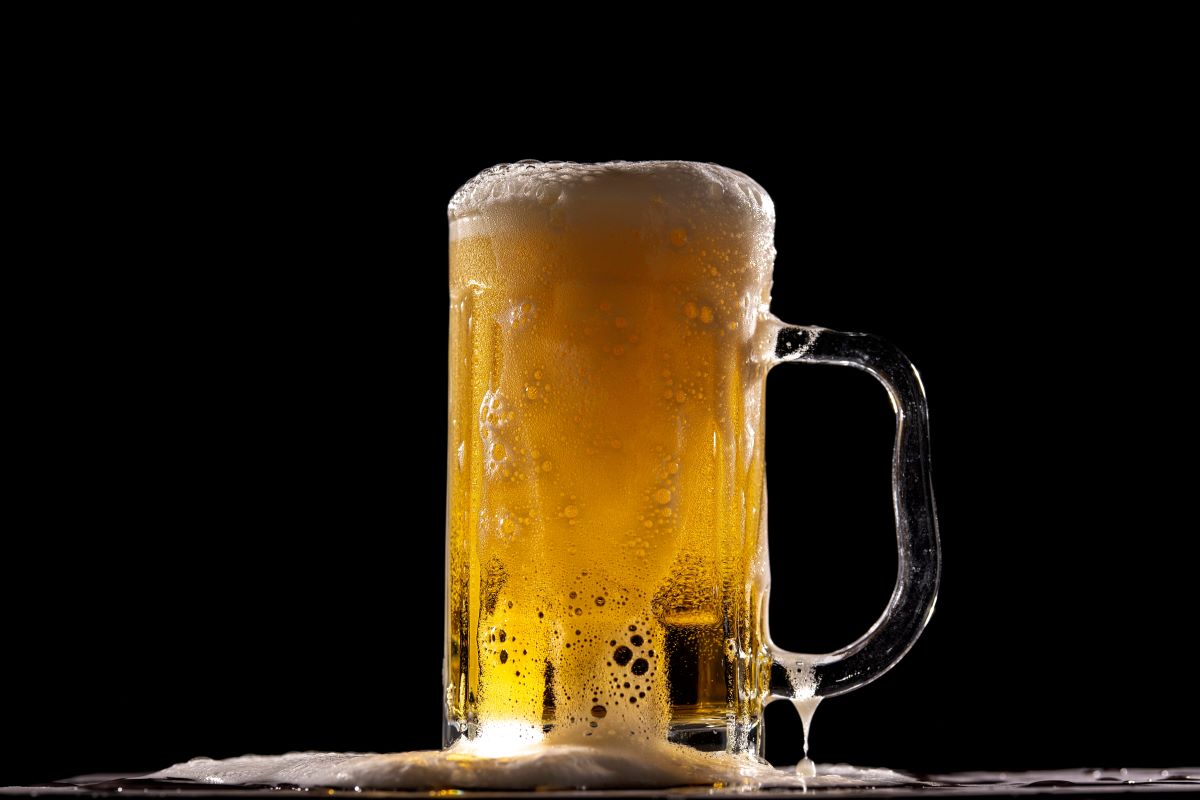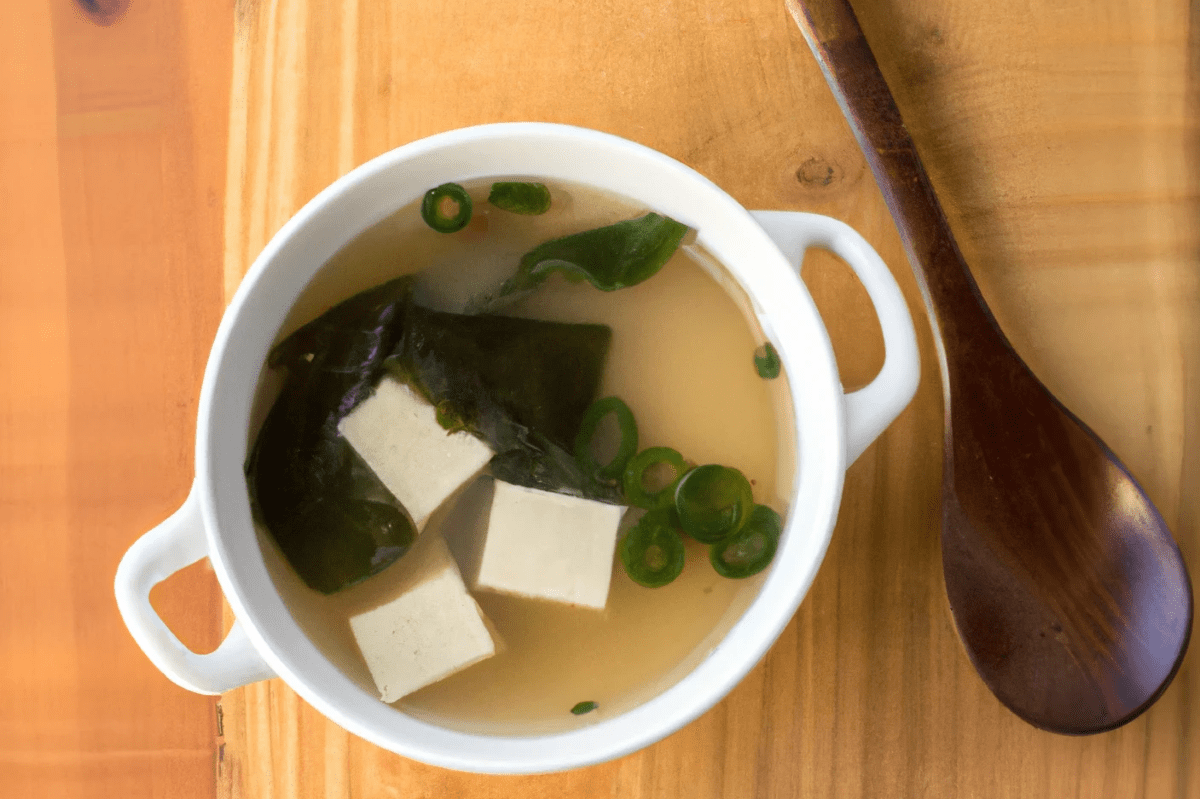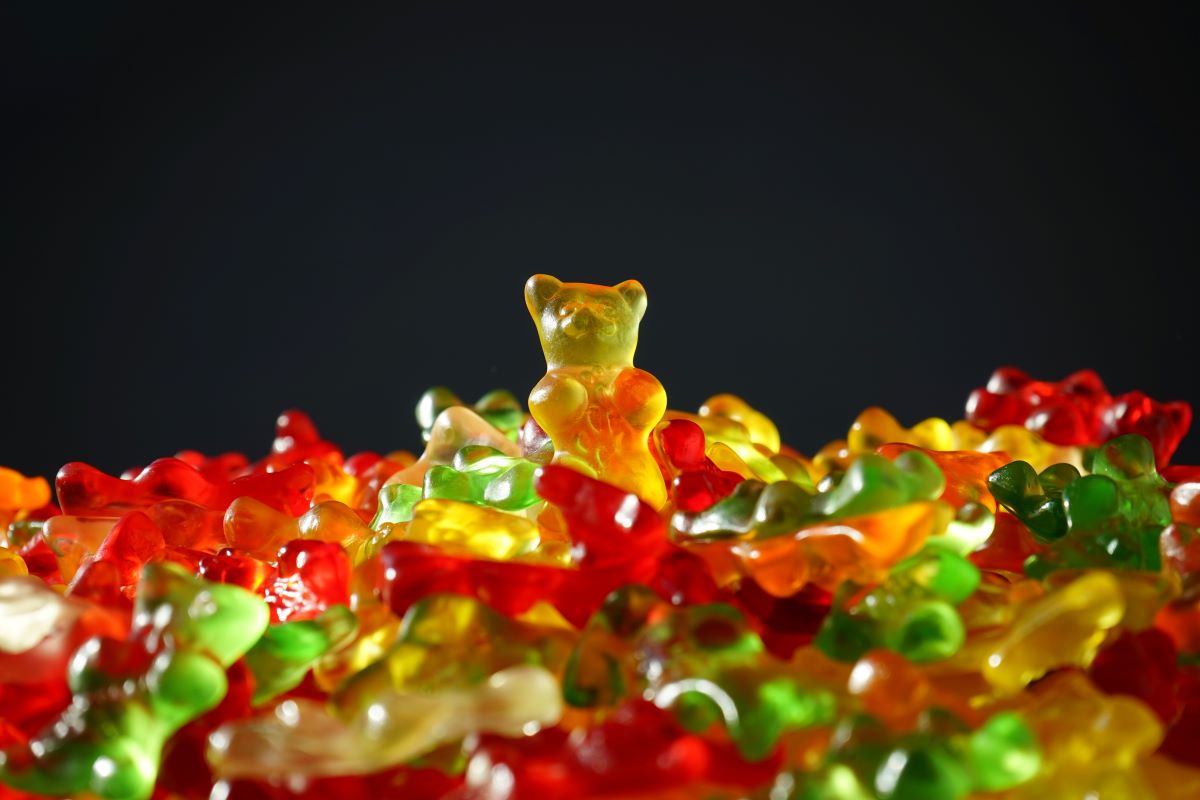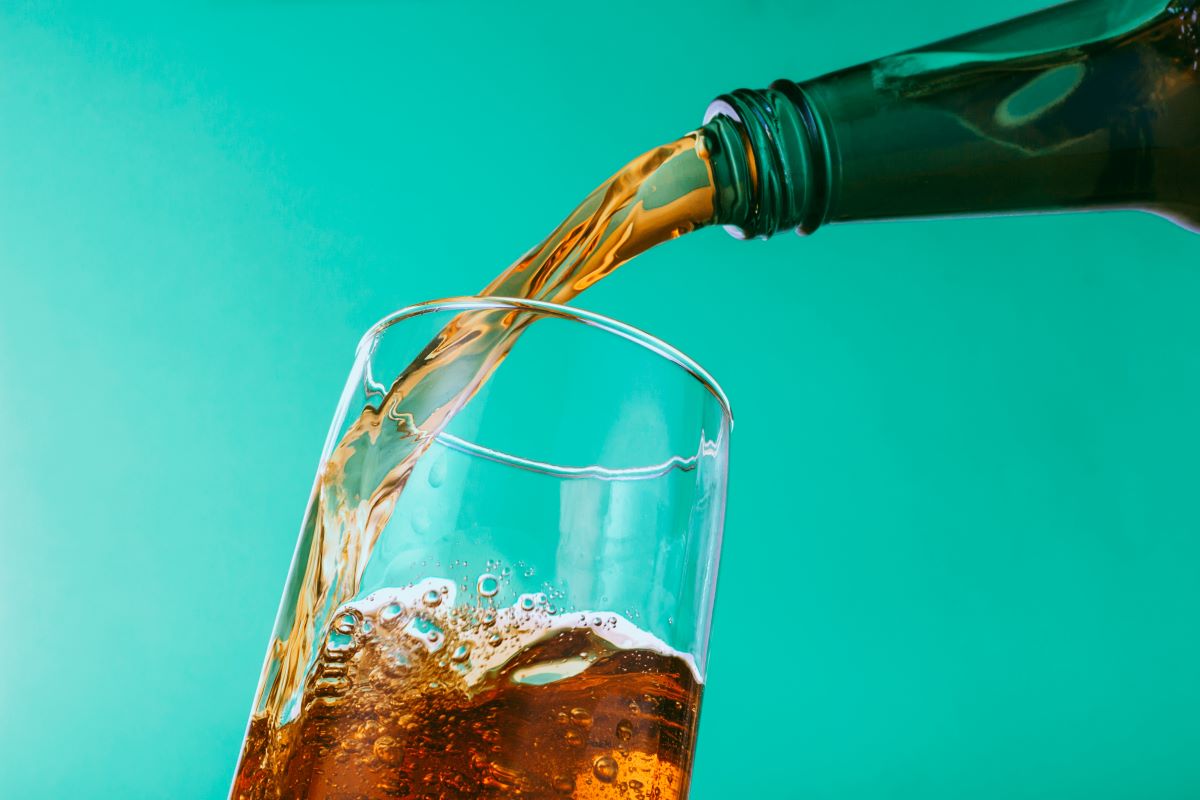Table of Contents
Is Beer Vegan?
Beer, an alcoholic beverage, is generally considered vegan, since its main ingredients water, barley, yeast, and hops are all vegan. However, there are some breweries that use animal products, such as isinglass, gelatin, glycerin, or casein, in the brewing process.
Non-Vegan Ingredients or Processes
Non-vegan ingredients or processes can be found in the manufacturing process of certain beers. For example, some beers may use animal products like honey or lactose as sweeteners or clarifying agents, such as isinglass, sourced from fish bladders, to remove impurities. Additionally, certain brewing processes involving the use of gelatin for fining agents derived from animal sources may be used to clarify the beer.
It’s important to note that not all beers use these animal-derived products or additives in the manufacturing process. Many breweries have started to explore alternative methods or substitute vegan-friendly ingredients, such as using plant-based fining agents like Irish moss or utilizing innovative filtration techniques.
Isinglass
A question many people don’t often ask themselves is what isinglass is and how it’s central to beer brewing. Isinglass is a substance commonly used in the beer industry for clarifying purposes. It is derived from the dried swim bladders of fish, typically sturgeon or tropical fish. Isinglass works by binding to solid particles, such as yeast or sediment, in the beer and causing them to settle at the bottom, resulting in a clearer and more visually appealing final product.
Controversies or Gray Areas within the Vegan Community
Controversies and gray areas within the vegan community surrounding beer revolve primarily around the use of animal-derived fining agents for clarification. Some vegans question whether beers clarified with agents like isinglass or gelatin can classify as vegan, while others argue that the small trace amounts left in the final product are negligible. Additionally, issues arise regarding potential cross-contamination in breweries that produce both vegan and non-vegan beers, as well as debates over the inclusion of honey as an ingredient, with differing views on its ethical implications.
Vegan-Friendly Alternatives and Variations
Good news, vegan beer drinkers! Many craft breweries now use vegan-friendly fining agents like Irish moss in the production of beer. Most grocery stores now offer a selection of vegan-friendly beer brands that align with those following a plant-based diet. This section will cover some vegan-friendly beer brands, so you know what brands to keep an eye out for!
Store-Bought Alternatives
Popular Brands and Products
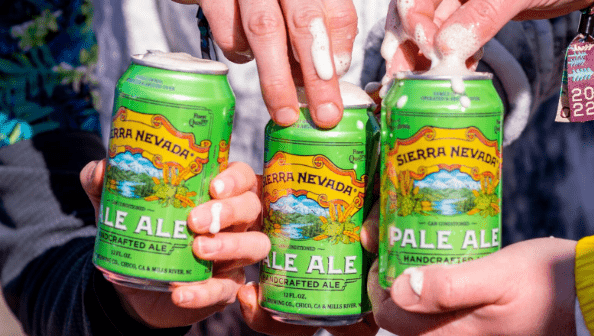
Sierra Nevada®
Sierra Nevada® offers a wide range of vegan-friendly beers. They clearly label their vegan options, and their beers are known for their quality and diverse styles, including pale ales, IPAs, and stouts.
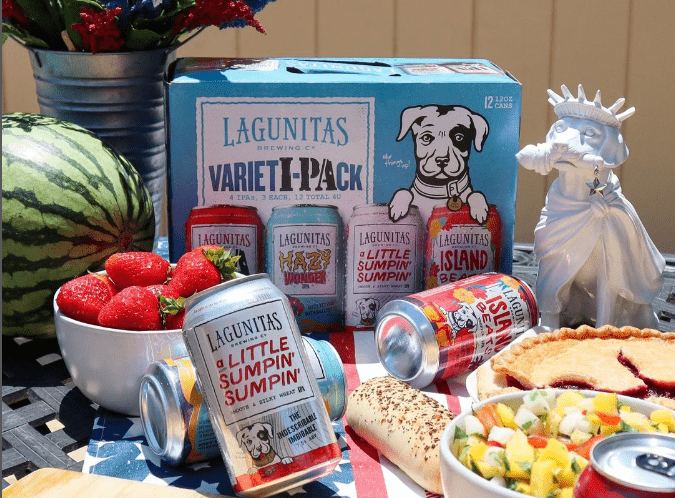
Lagunitas Brewing Company
Lagunitas is another well-known brewery that offers vegan beers. They have various options, from their classic IPA to seasonal releases. Their beers are widely available and appreciated for their bold flavors.
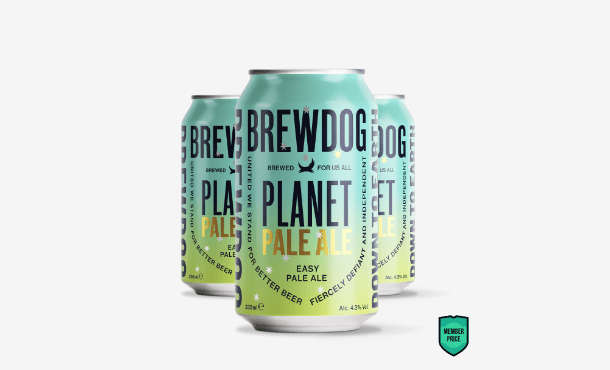
BrewDog
BrewDog is a renowned craft brewery and pub chain that offers a range of vegan-friendly beers. They focus on bold and hoppy beers, with offerings such as Punk IPA, Hazy Jane, and Dead Pony Pale Ale.
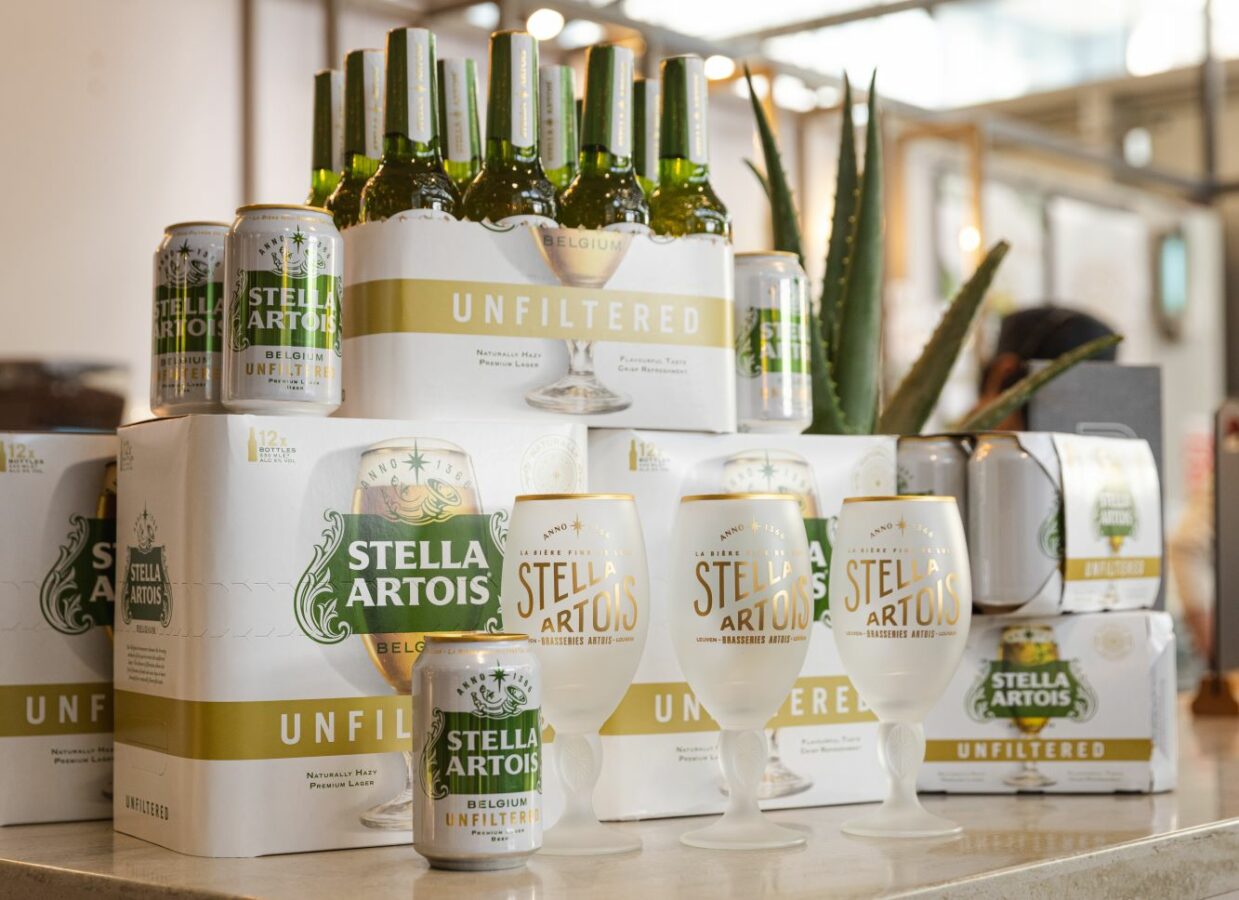
Stella Artois®
Stella Artois® is a popular Belgian lager known for its smooth and crisp taste. While Stella Artois does not explicitly market any specific beers as vegan, their classic Stella Artois lager is typically considered vegan-friendly. The traditional brewing process for Stella Artois does not involve the use of animal-derived fining agents like isinglass or gelatin, making it suitable for many vegans.
It is still important to check the label or contact the brewery directly for the most up-to-date and accurate information on specific beer formulations and their vegan status.
Tips for Identifying Vegan-Friendly Options
If you’re looking for vegan-friendly beers, focus on breweries that label their products vegan, or who use alternative fining agents like Irish moss or synthetic options.
Checking the ingredients list can also help you get more information on the ingredients used.
Additionally, you can check the brewery’s website or directly contact them to learn about their production methods and ingredients. Also, consider exploring other beverage types like non-alcoholic beers, ciders, hard seltzers, craft-brewed sodas, and kombucha as potential vegan alternatives to traditional beer.
How Beer Is Made
Beer is made through a process called brewing. It involves mashing malted grains with hot water to extract sugars, adding hops for bitterness and aroma during boiling, fermenting the resulting liquid with yeast to convert sugars into alcohol and carbon dioxide, and finally, clarifying and carbonating the beer before packaging it for consumption.
Primary Ingredients
Beer’s basic ingredients are mainly water, malted grains (usually barley), hops, and yeast. Water acts as the beer’s base, supplying the liquid foundation. Malted grains offer essential sugars for fermentation. Hops add to the beer’s bitterness, flavor, and aroma. Meanwhile, yeast plays the critical role of fermenting sugars into alcohol and carbon dioxide, defining the beer’s character.
Production Process
The process of making beer involves several key steps. It starts with malting, where grains like barley are soaked in water, allowed to germinate, and dried. These malted grains are milled to create a fine powder known as grist. During the mashing process, hot water mixes with the grist to extract fermentable sugars, triggering enzymes that convert starches into sugars. The liquid resulting from this process, known as wort, is then separated from the grain husks.
Boiling comes next, where hops are added to the wort for bitterness, flavor, and aroma. This step sterilizes the wort, extracts hop compounds, and cultivates the desired flavor. After boiling, the wort cools quickly to reach the right temperature for fermentation.
Once fermentation is over, the beer may undergo further processing, like conditioning and aging. This process clarifies the beer, helps the flavors mature, and allows any remaining yeast and sediment to settle. Carbonation can naturally occur during fermentation or be introduced before packaging.
After reaching the desired flavor, clarity, and carbonation, the beer generally goes through filtering or centrifugation to remove any remaining solids. Then, it’s packaged into kegs, cans, or bottles for distribution and consumption. Some traditional or craft brews may even undergo bottle conditioning, with a small amount of sugar and yeast added to stimulate natural carbonation over time.
Sourcing Considerations
Environmental Impact
Beer production and consumption have a significant impact on the environment, affecting various aspects such as water usage, energy consumption, greenhouse gas emissions, and waste generation.
Water is a crucial resource in beer production, both for growing ingredients like barley and hops and for the brewing process itself. Large quantities of water are required for irrigation, and breweries consume substantial amounts for cleaning, cooling, and fermentation. This heavy demand can strain water supplies, especially in regions already experiencing water scarcity. Some breweries have implemented many efforts to conserve water through efficient brewing practices and wastewater treatment systems, but the industry still faces challenges in minimizing its water footprint.
Energy consumption is another significant concern. Brewing beer involves several energy-demanding stages, including malting, mashing, boiling, and refrigeration. The industry’s high energy requirements come from heating and cooling processes, and operating various machines. The environmental impact of beer production can be reduced through increased use of renewable energy sources and the adoption of energy-efficient technologies.
Waste generation is an issue throughout the beer production cycle. Brewing byproducts, such as spent grains and hops, can be repurposed as animal feed or compost, but a substantial amount still ends up in landfills or contributes to water pollution if not properly managed. Additionally, packaging materials, including beer bottles, aluminum cans, and plastic wrapping, contribute to the industry’s waste stream. Many breweries today are pursuing a plan to improve recycling rates and explore eco-friendly packaging alternatives to minimize waste and its environmental impact.
Overall, the beer industry recognizes the need to address its environmental footprint. In recent years, many breweries have started to implement sustainable practices, such as water conservation, renewable energy adoption, waste reduction, and responsible sourcing of ingredients.
FAQs
Can craft beers be vegan?
Craft beers can indeed be vegan, as many breweries have embraced vegan-friendly brewing practices by using alternative fining agents, such as Irish moss or synthetic options, instead of animal-derived fining agents like isinglass, gelatin, or fish bladder. However, it’s important to note that not all craft beers are vegan, so it’s still important to check and research.
Can beer go bad?
Yes, beer can go bad over time. Several factors, like exposure to light, extreme heat, oxygen, and the presence of certain bacteria or contaminants, can spoil a beer’s flavor, aroma, and quality. To enjoy the best drinking experience, you should store beer correctly in a cool, dark place and drink it within its recommended shelf life.
Does beer contain dairy or lactose?
No, beer typically does not contain dairy or lactose. The primary ingredients in beer are water, malted grains (such as barley), hops, and yeast. Dairy products and lactose are not standard ingredients in the brewing process, although some specialty beers may include lactose for specific flavor profiles, such as milk stouts. However, most beers do not contain dairy or lactose.
